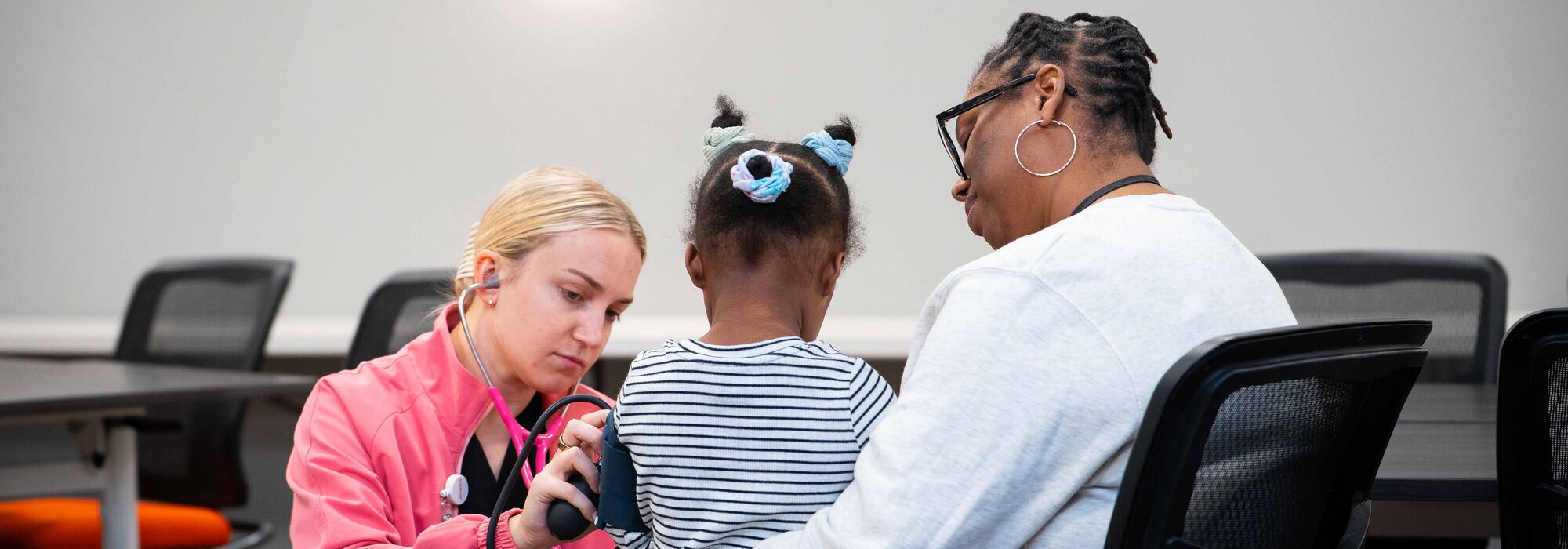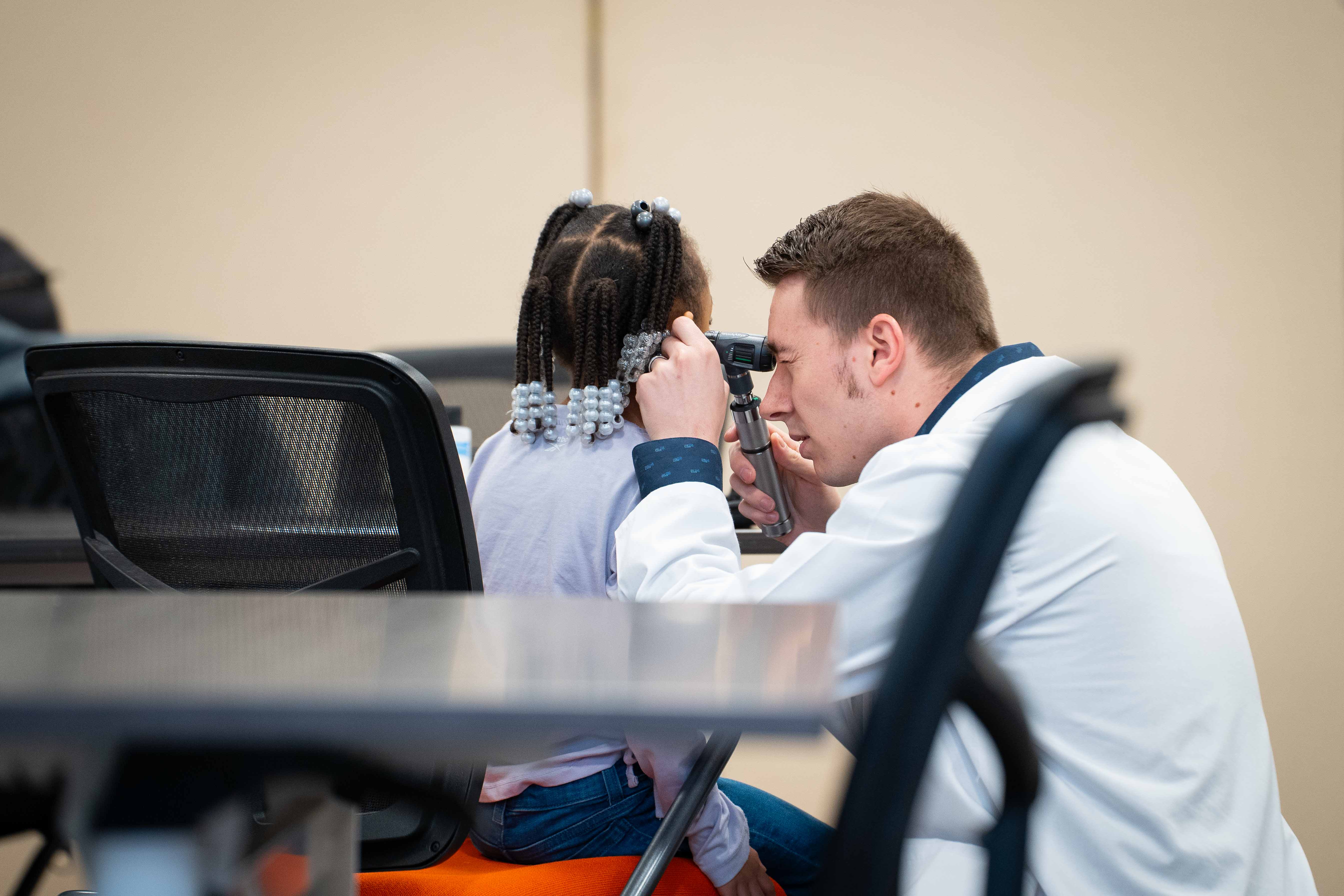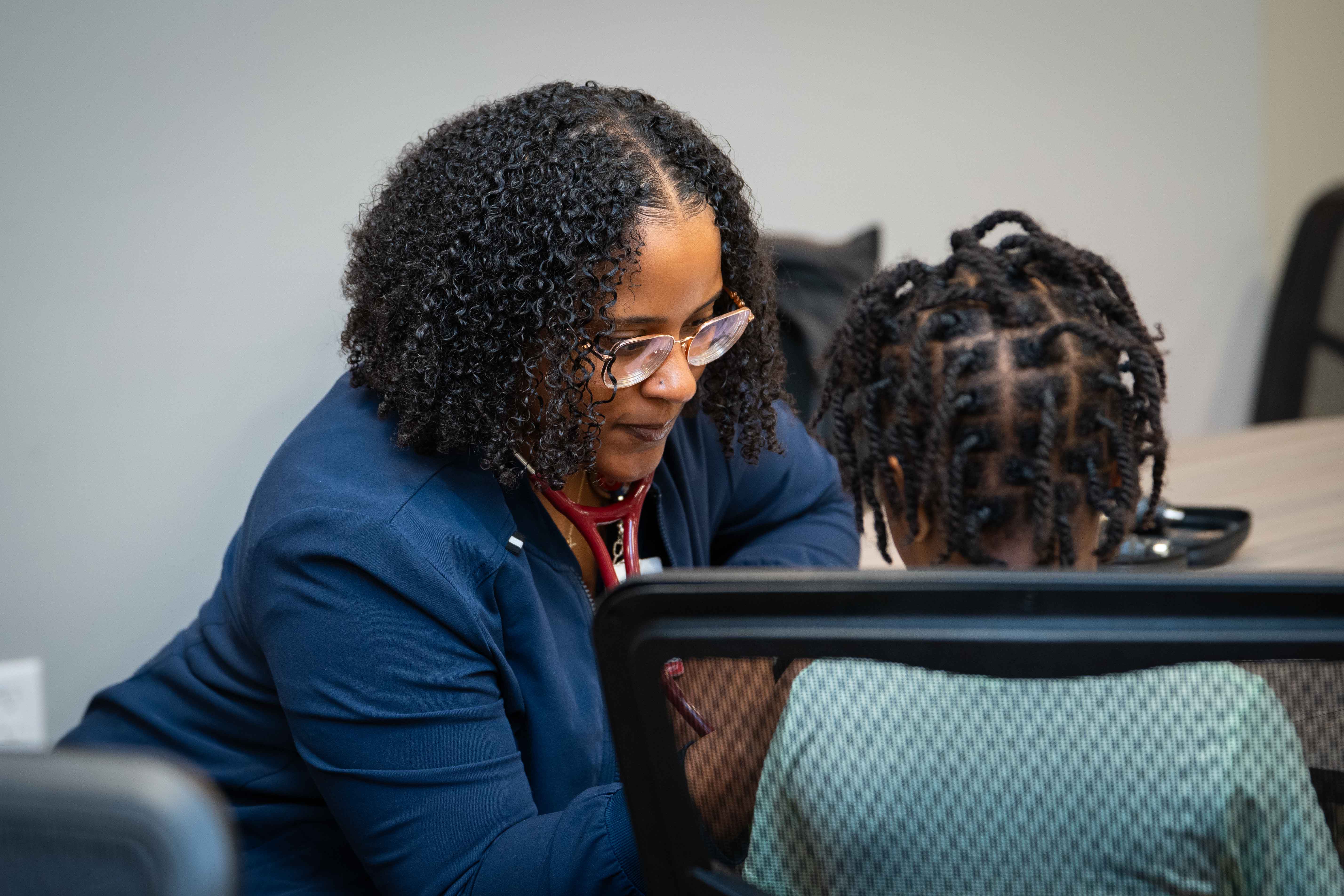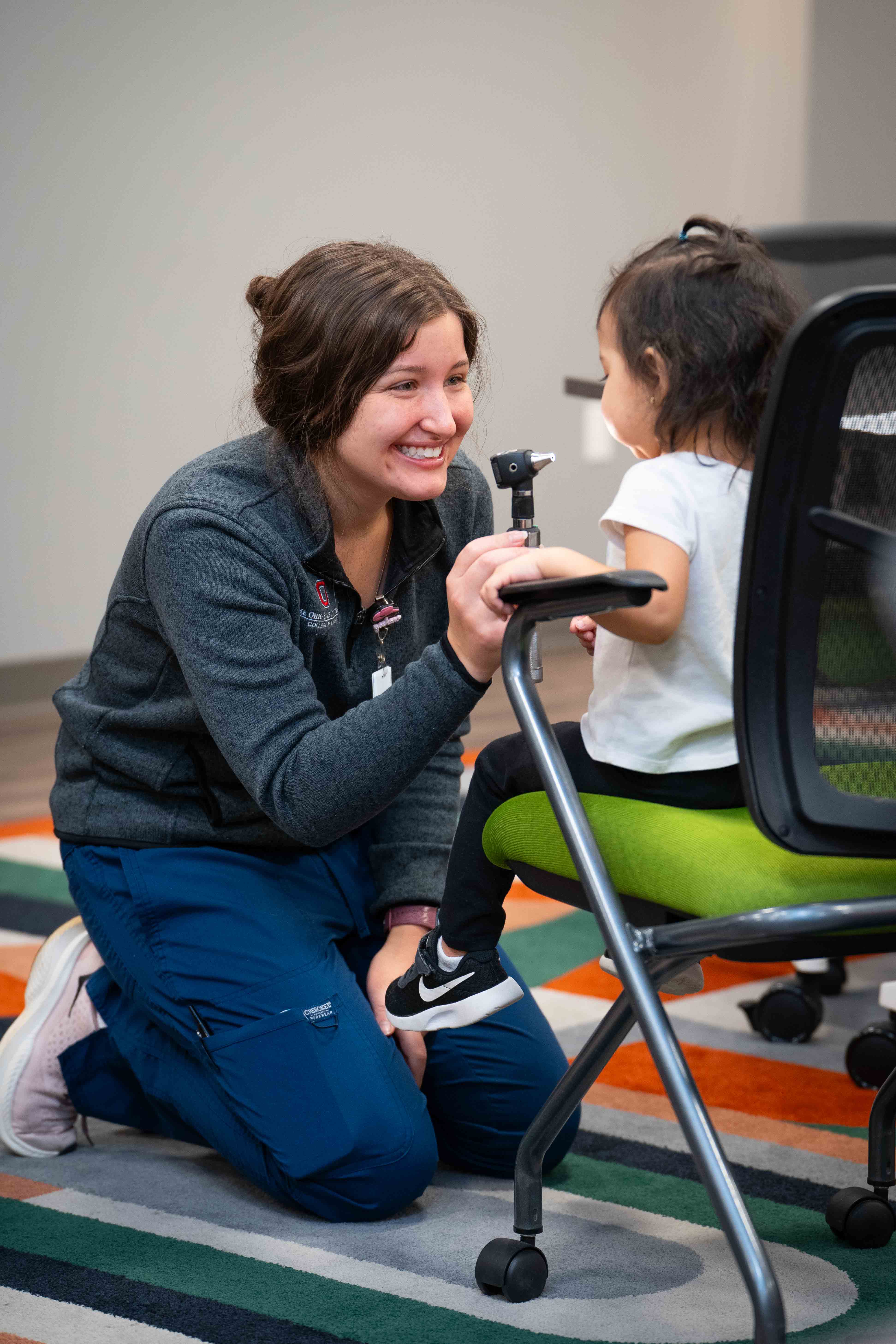
Local Outreach: Helping Head Start
Pictured above: FNP student Alison Benner takes a child's blood pressure.
by Susan Neale
For more than 13 years, master’s degree students from Ohio State and their professors have been providing health screenings and exams for children at local Columbus-area Head Start preschools. This partnership provides our pediatric nurse practitioner (PNP) and family nurse practitioner (FNP) students clinical hours, the opportunity to work with children and the gratification that comes with giving back to the community.
“It’s such a great age to have our students there working with the kids and the kids love the attention. So it’s really great for everybody involved,” said Rosie Zeno, DNP, APRN-CNP, the College of Nursing’s assistant dean for APRN and master’s education.
“Head Start provides comprehensive early childhood education, health and nutrition services and parent involvement services,” Zeno said. Head Start is a nationwide, federally funded nonprofit program the United States Department of Health and Human Services started in 1965, designed to promote school-readiness in children from birth to age 5, particularly from low-income families. Zeno describes the strengths of the program as, “fostering stable family relationships, enhancing physical, social and emotional well-being among the kids and developmentally setting them up for success when they hit school at age 5.”

“This population is particularly at high risk because of their economic disadvantage. Many of them come from low-income families, which limits their access to healthcare, nutritious food, education – what we think of as social determinants of health. That’s really their primary challenge,” Zeno said. “Therefore, a lot of times, they are then at higher risk for developmental delay or family instability.”
There are 24 Head Start schools in the greater Columbus area, and the College of Nursing team sees students from all of them. Zeno estimates that the College of Nursing team makes 20 visits to schools a year, helping a total of about 300 children. “We go to schools that have the space and ability to host these events,” Zeno said, and other schools bus their children to those sites. The nursing students and their faculty mentors give the children physical examinations and health screenings and help fill out the children’s health forms. Children also receive vision, hearing and dental screenings.
“We don’t just do the screenings and then walk away,” Zeno assured us. “We’re also giving health promotion education and resources to the families so they can follow up on things that they might need to follow up on.” The team provides parents with information they might need to help their children’s development and a list of community resources where they can easily access free or low-cost healthcare services.
“Our students gain value in seeing firsthand the impact that social determinants of health can have on children at such a young age.”
- Rosie Zeno
“Our students gain value in seeing firsthand the impact that social determinants of health can have on children at such a young age,” Zeno said, adding that this impact can potentially ripple out across a child’s lifespan. Connecting with children in Head Start and their families gives our students valuable insight into the challenges that people from medically underserved populations face. In addition, she said, the students begin to understand their own importance as advanced practice providers and leaders in healthcare who can advocate for health equity and access to quality healthcare.
The partnership is beneficial for the Head Start program, as well. “It’s been phenomenal in helping our agency complete those medical examinations and meeting our requirements,” said Moussa Cisse, MPA/CH, Health Services director at the Child Development Council of Franklin County. “We cannot do it without them. They are very instrumental.”

“One of our requirements since we are funded by the Department of Health and Human Services is to complete medical examinations of the children within 30 days of enrollment,” Cisse explained. A family services worker with Head Start works with families to determine if children have up-to-date medical exams, including dental, vision and hearing screenings, but “working with over a thousand children to complete medical exams in just 30 days is just not realistic,” Cisse said. “That’s why we established a partnership with the Ohio State College of Nursing.”
Student-eye view
Peyton Mast, RN, (’21 BSN) a post-anesthesia care nurse at Nationwide Children’s Hospital, is in the BSN-DNP program in the FNP track, due to graduate in 2026.
“The Head Start program is a really great way for us to get pediatric clinical hours while helping out in the community,” she said. “It lets us practice our pediatric assessment skills – because it’s much different trying to look into the ears of a 4-year-old than the ears of a 40-year-old!”
“Our teachers encourage us to do more, if possible,” she said. “I had one child who – I looked into her mouth and at her teeth and saw a significant amount of cavities.” Mast asked the girl about tooth care at home.
“I brush my teeth, but I’ve never been to a tooth doctor,” the girl replied, and Mast was able to send the girl’s parents a recommendation for dental care.
“Sometimes they just need care that they don’t have access to,” Mast said. She also acknowledged that it can be hard for parents to recognize health abnormalities in their own child.

Mast takes special care to be friendly, kind and approachable with children. “Kids are always watching you and making decisions based on how you present yourself, and it’s really important to keep that in mind,” she said. A negative experience with a healthcare provider can have lasting effects.
To test children’s lungs, she plays a game with them, holding up a little light and asking them to blow it out like a birthday candle. “Other kids will see their classmates playing with me … and suddenly they want to play with me, too. They learn to trust based on each other,” she explained, and that trust translates into letting her look into their ears and mouths without fear. It also gives the children positive associations with healthcare providers.
- Online Excellence
- Local Outreach: Helping Head Start
- DNP Nurse Executives
- Predicting Preterm Birth Risk
- Buckeye Inspiration: Teresa DiMeo
- In Memoriam
- Be the One
- The Great FLO Race
- Student Life: Briana Gordon
- Student Life: Cole Sullivan
- Celebrating the Class of 2025
- Grants Roundup
- Analyzing Fertility-tracking Technology Use
- Fuld Focus
- Alumni in Action: Diana Kupchella
- Water for Emotional Wellness
